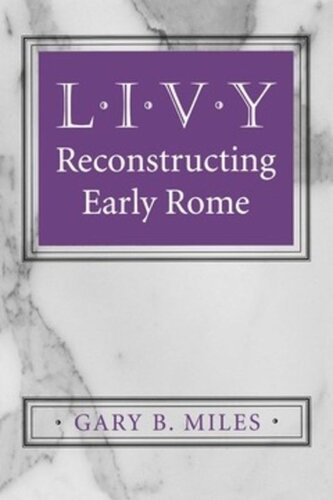

Most ebook files are in PDF format, so you can easily read them using various software such as Foxit Reader or directly on the Google Chrome browser.
Some ebook files are released by publishers in other formats such as .awz, .mobi, .epub, .fb2, etc. You may need to install specific software to read these formats on mobile/PC, such as Calibre.
Please read the tutorial at this link: https://ebookbell.com/faq
We offer FREE conversion to the popular formats you request; however, this may take some time. Therefore, right after payment, please email us, and we will try to provide the service as quickly as possible.
For some exceptional file formats or broken links (if any), please refrain from opening any disputes. Instead, email us first, and we will try to assist within a maximum of 6 hours.
EbookBell Team

4.1
60 reviewsSome critics of the Roman historian Livy (59 B.C.-A.D. 17) have dismissed his work as a compendium of stale narratives and conventional attitudes. Gary B. Miles reveals in Livy's history a creative interplay between traditional stories, contemporary ideological assumptions, and the historian's own perspective at the margins of Roman aristocracy. Drawing on a range of critical approaches, Miles considers Livy's stance as a historian, the ways in which he reworked his sources, and his interpretation of such historical phenomena as recurrence, continuity, and change. Miles focuses on the foundation stories with which Livy begins his account, detecting in Livy's rendition certain original conceptions of historical time including the suggestion that Roman identity and greatness might be preserved indefinitely through successive reenactments of a historical cycle. Miles pays particular attention to two stories—those of the abduction of the Sabine women and of Romulus and Remus, showing how Livy's versions of these traditional narratives—far from leading to a simplistic moral—address unresolved political issues of his day. According to Miles, Livy shows an unusually tenacious willingness to confront dilemmas in historiography and Roman ideology which were commonly ignored or suppressed by both his predecessors and his contemporaries.